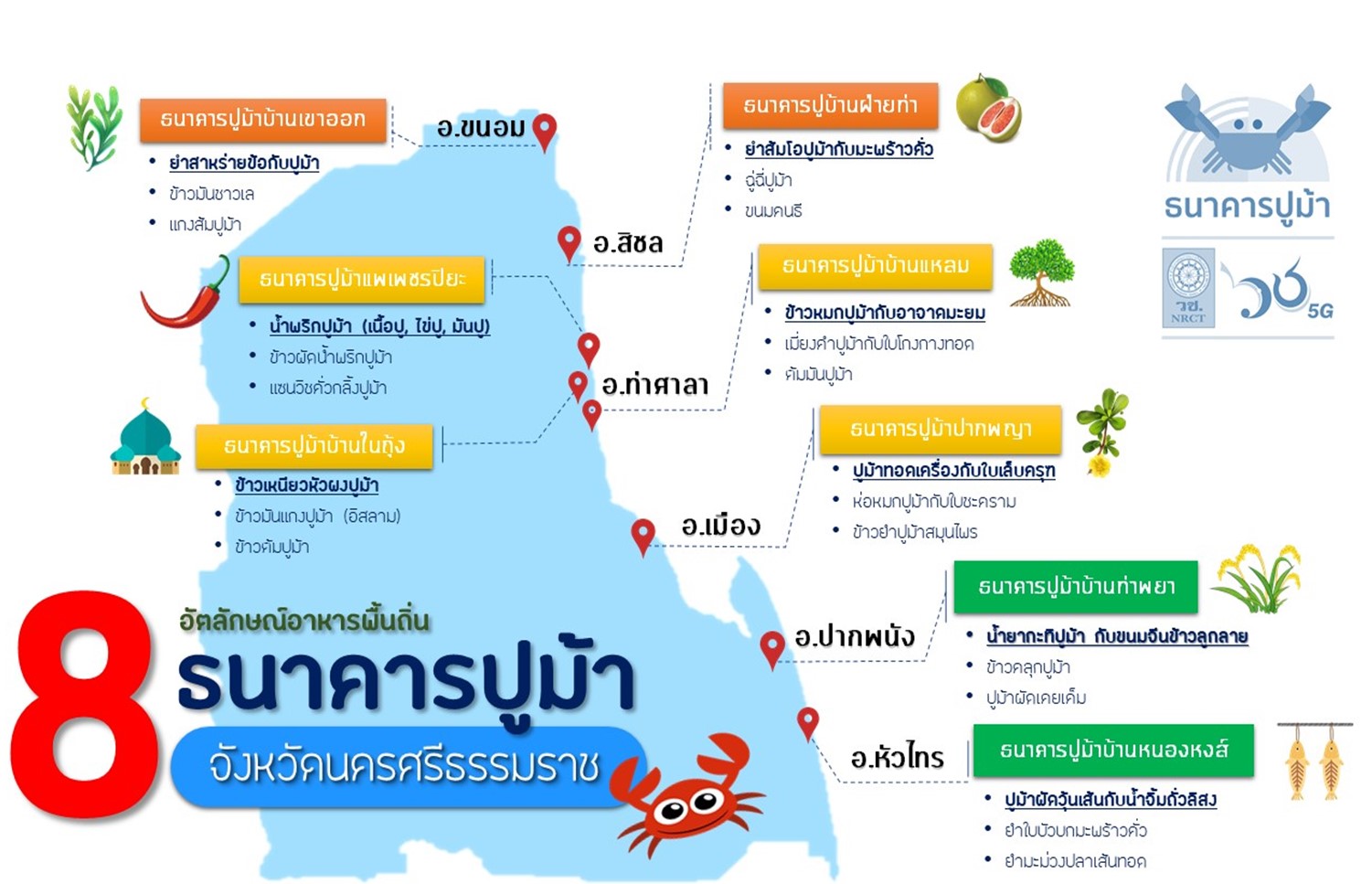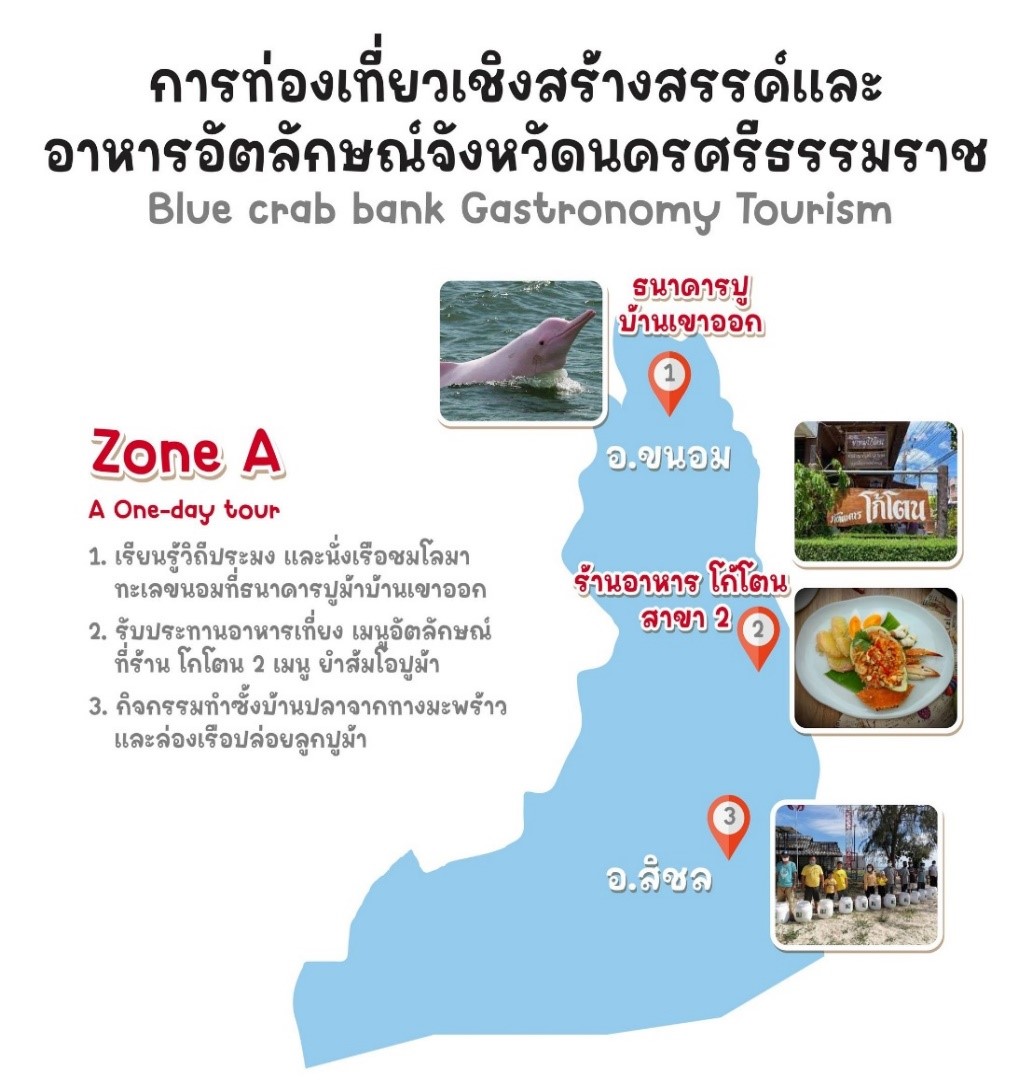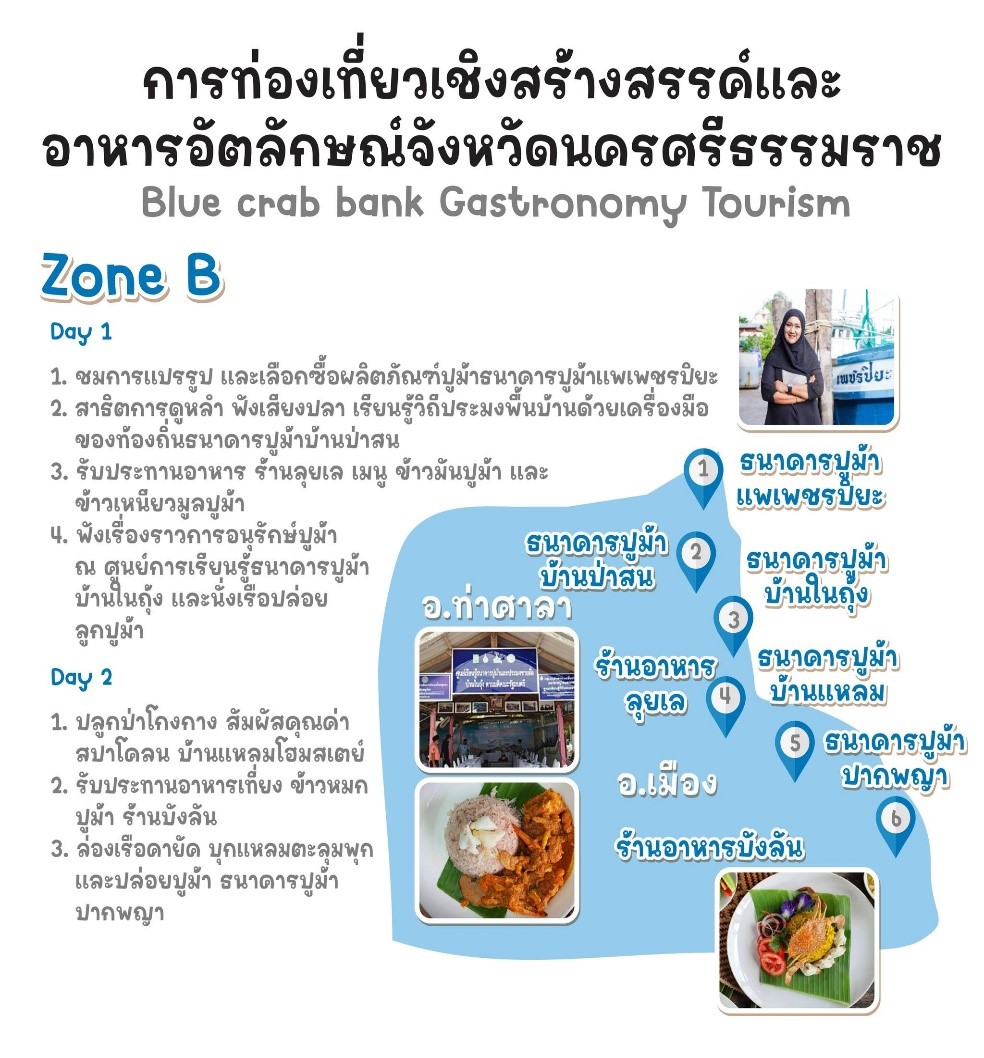WU Social Engagement projects: Free educational outreach for local and national communities.
The Center for Academic Service Walailak University, which is led by Assist. Prof. Dr. Amonsak Sawusdee, the fishery science expert, has organized several training outreach programmes to educate practitioners such as fishermen, fishery staffs and those involved in applying knowledge for fishery resources management such as restoration, aquaculture, maintaining ecosystem, diversity and sustainable fishery etc. WU worked closely with the Department of Fisheries, the Department of Marine and Coastal Resources, and local NGOs, such as Thai Sea Watch association and Federation of Thai Fisher Folk Association, to regularly organize free activities in 2024, as portrayed below:
1.WU organized training activities to educate fishery lovers who related to using and managing fishery resources, such as fishermen, fishery biologist from fishery department and fishery stakeholders, on sustainable fisheries utilization, including the suitable catching size of aquatic animals, legal and illegal fishing activities, prohibition of fishing in the spawning season, conservation of the spawning grounds and encouraging a grouping mechanism for communities to collaborate in the activities to restore fishery resources, such as Blue crab, in natural waters nearby community areas.
- Technology transfer activity on Blue crab aquaculture was organized to enable fishermen who catch berried female blue crabs to hatch and culture or treat baby crabs from the Zoea to mature stages. The target audients or practitioners were fishermen, fishery biologist, students and aquaculture famers. In addition, this outreach activity aims to transfer knowledge and understanding about hatchery condition and management, suitable water quality, feeding techniques and survival rate improvement. The young crab from the hatching processes can directly culture in pond condition for economic purpose and also can release to natural water for conservation purpose. This educational outreach, moreover, explained the appropriate method to release young blue crab back to the sea to increase the survival rate in nature.
- The lecturers from the School of Management at Walailak University organized free education outreach projects for tourism entrepreneurs, fishermen, officers of tourism government organizations, hotel operators, and anyone who was interested. The projects were conducted with the purpose of promoting eco-friendly tourism, environmental impact reduction, special dish development portraying local identity based on gastronomy tourism, and promoting sustainable marine resource utilization for tourism. The projects were expected to contribute to generating the participants’ income and raising awareness of marine resource conservation for sustainable tourism. More importantly, WU planned to develop a tourism plan based on the marine resources in Nakhon Si Thammarat, covering districts including Khanom, Sichon, Tha Sala, Mueang, Pak Phanang, and Hua Sai.



- WU has organized free educational outreach activities on sustainable ecosystem creating an artificial habitat and restoring fish stock. These activities also aimed to build a complex ecosystem to maintain species biodiversity and ecosystem services in the fishing ground area, such as building fish houses as a habitat and shelter for aquatic animals, releasing young aquatic animals back into the Thai sea improving abundance of fishery stock and collecting plastic garbage in water minimizing micro plastic in natural ecosystem.
5. Walailak University, through Asst. Prof. Dr. Amonsuk Sawusdee, a researcher and lecturer at WU, has partnered with the Department of Fisheries, the Department of Marine and Coastal Resources, the Thai Frozen Foods Association, the World Wildlife Fund (WWF), and representatives from fishermen groups with the aim of gathering academic data and exchanging perspectives for planning marine resource management strategies. In this regard, Asst. Prof. Dr. Amonsuk Sawusdee disseminated information and research results on fishery biology, oceanography, and the socio-economic status of local fishing communities, which led to the application of research in policy formulation, especially in Ban Don Bay, a vital fishing area in the Gulf of Thailand.
Goal 14: Life below water
Goal 4: Quality education
Goal 15: Life on land
Goal 17: Partnerships for the Goals

